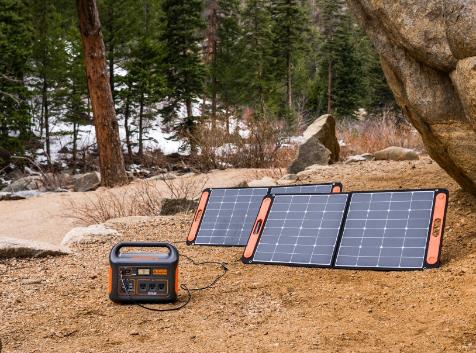Exploring the Capabilities of a 100 Watt Solar Panel
Diving into the world of solar energy, a 100 watt solar panel stands out as a versatile and widely accessible option for those looking to harness the power of the sun. Understanding what a 100W panel can do requires a close look at its energy output capabilities, the factors that influence its performance, and the types of devices it can power. Let’s unpack the potential of this compact yet powerful solar solution.

Solar Panel Output and Efficiency
A 100W solar panel, under ideal conditions, is designed to produce 100 watts of power per hour during peak sunlight. However, actual output can vary based on several factors including geographic location, time of year, and installation angle. On average, such a panel can generate about 0.4 to 0.5 kWh of energy per day, assuming 4 to 5 hours of peak sunlight.
Determining What It Can Power
Given its output, a 100W solar panel can support a variety of small to medium-sized electronic devices and appliances. Here’s a snapshot of what you can expect it to run:
- LED Lights: With each bulb consuming around 7 to 10 watts, a 100W panel can easily light up several LEDs for a few hours each evening.
- Smartphones and Tablets: Charging these devices, which typically require 5 to 10 watts, can be done multiple times over a day.
- Laptops: Most laptops need about 45 watts for charging, making it feasible to charge a laptop at least once per day.
- Small Fans: Operating a small fan that consumes about 20 watts is possible for several hours.
- Wi-Fi Routers: Considering a router may use 5 to 15 watts, keeping your internet on round-the-clock is within reach.
Enhancing Solar Panel Efficiency
To maximize the output of a 100W solar panel, ensuring optimal placement is key. Panels should face south in the Northern Hemisphere, and north in the Southern Hemisphere, tilted at an angle roughly equal to the latitude of the location to capture the maximum amount of sunlight.
Battery Storage: A Necessary Companion
For continuous power supply, especially during the night or cloudy days, integrating a battery storage system is essential. The capacity of the battery will determine how much energy can be stored and utilized when direct solar power isn’t available.
Challenges to Consider
While a 100W panel offers a green energy solution, it’s important to be mindful of its limitations. Larger appliances like refrigerators, microwaves, or electric heaters surpass the output capabilities of a single 100W panel. Running such appliances requires a more extensive solar setup.
What will a 100 watt solar panel run?
A 100 watt solar panel provides a gateway to solar energy use, capable of powering small appliances and charging electronic devices. It represents an excellent starting point for those new to solar power or for specific applications like camping, emergency backup, or remote power needs.
In conclusion, while a 100W solar panel may not power your entire home, it offers significant utility for specific needs or smaller scale applications. By understanding and optimizing its capabilities, users can effectively harness solar power, contributing to a sustainable and environmentally friendly energy solution.